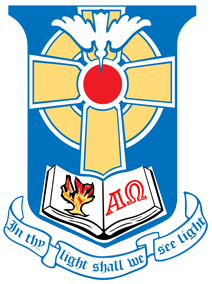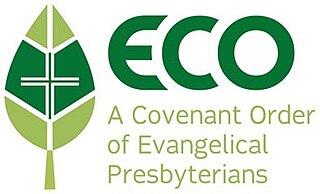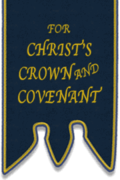
Presbyterianism is a part of the Reformed tradition within Protestantism that broke from the Roman Catholic Church. Presbyterian churches derive their name from the presbyterian form of church government by representative assemblies of elders. Many Reformed churches are organised this way, but the word Presbyterian, when capitalized, is often applied to churches that trace their roots to the Church of Scotland or to English Dissenter groups that formed during the English Civil War.

The Non-subscribing Presbyterian Church of Ireland is a non-creedal Christian Church, which maintains a great emphasis on individual conscience in matters of Christian faith.

The Associate Reformed Presbyterian Church (ARPC), as it exists today, is the historical descendant of the Synod of the South, a Synod of the Associate Reformed Church. The original Associate Reformed Church resulted from a merger of the Associate Presbytery and most of the Reformed Presbytery in Philadelphia in 1782. The northern Synods eventually merged with the forebears of the Presbyterian Church (USA). Because of its 1782 date of origin, it is one of the oldest of the United States' theologically and socially conservative denominations.

The Presbyterian Church in the United States of America (PCUSA) was a Presbyterian denomination existing from 1789 to 1958. In that year, the PCUSA merged with the United Presbyterian Church of North America. The new church was named the United Presbyterian Church in the United States of America. It was a predecessor to the contemporary Presbyterian Church (USA).

The Reformed Church in the United States (RCUS) is a Protestant Christian denomination in the United States. The present RCUS is a conservative, Calvinist denomination. It affirms the principles of the Reformation: Sola scriptura, Solus Christus, Sola gratia, Sola fide, and Soli Deo gloria. The RCUS has membership concentrated in the Midwest and California.

The Bible Presbyterian Church is an American Protestant denomination in the Calvinist tradition.

Calvinist confessions of faith are the confessions of faith of various Calvinist churches. These documents express consensus on doctrine for the church adopting the confession. A few confessions are shared as subordinate standards by many denominations, which have made their choices from among the various creeds for primarily historical reasons. Some of the common Calvinist confessions are :
The Westminster Presbyterian Church in the United States (WPCUS) was a Presbyterian denomination, founded in United States in 2006, by Rev. Brian Schwertley, formerly affiliated with Covenant Reformed Presbyterian Church and other pastors formerly affiliated with other Presbyterian denominations. The founders were particularly concerned with the perceived spread of liberal teaching within Presbyterianism in the United States and in particular with Federal Vision theology, which they believe supplies a different understanding of doctrines such as justification and the perseverance of the saints.
The Reformed Presbyterian Church, Evangelical Synod was a Reformed and Presbyterian denomination in the United States and Canada between 1965 and 1982.
The Reformed Presbyterian Church - Hanover Presbytery is a very conservative Protestant, Presbyterian denomination, founded in 1991, with congregations in United States and also in Brazil.

The Reformed Presbyterian Church of North America (RPCNA) is a Presbyterian church with congregations and missions throughout the United States, Canada, Japan, and Chile. Its beliefs—held in common with other members of the Reformed Presbyterian Global Alliance—place it in the conservative wing of the Reformed family of Protestant churches. Below the Bible—which is held as divinely inspired and without error—the church is committed to several "subordinate standards," together considered with its constitution: the Westminster Confession of Faith and Larger and Shorter Catechisms, along with its Testimony, Directory for Church Government, the Book of Discipline, and Directory for Worship.
The Evangelical Presbyterian Church is a Calvinist, Christian evangelical denomination that is found only in Northern Ireland, where it is the smallest of the Presbyterian churches. It was formed on 15 October 1927 by Rev. James Hunter (1863–1942), former minister of Knock Presbyterian Church (Belfast), and James (W.J.) Grier, a former student at the Assembly's College. They were joined by others who seceded from the Irish Presbyterian Church.
The Covenant Presbyterian Church (CPC) is a Protestant, Reformed denomination, founded in United States in 2006 by a group of churches that split from the Reformed Presbyterian Church General Assembly for supporting paedocommunion.

The Presbyterian Church in Ireland is the largest Presbyterian denomination in the Republic of Ireland, and the largest Protestant denomination in Northern Ireland. Like most Christian churches in Ireland, it is organised on an all-island basis, in both Northern Ireland and the Republic of Ireland. The church has approximately 210,000 members.

ECO: A Covenant Order of Evangelical Presbyterians is an evangelical Presbyterian denomination in the United States. As a Presbyterian church, ECO adheres to Reformed theology and Presbyterian polity. It was established in 2012 by former congregations and members of the Presbyterian Church (USA), abbreviated PC(USA). Denominational disputes over theology—particularly ordination of practicing homosexuals as pastors and gay marriage—and bureaucracy led to the founding of ECO. In 2018, ECO has over 383 congregations, 103,425 covenant partners and over 500 pastors. ECO churches are egalitarian in beliefs and ordain women as pastors and elders.

The Reformed Presbyterian Global Alliance is a communion of Presbyterians originating in Scotland in 1690 when its members refused to conform to the establishment of the Church of Scotland. The Reformed Presbyterian churches collectively have approximately 9,500 members worldwide in Northern Ireland, the Republic of Ireland, Scotland, France, the United States of America, Canada, Japan, South Sudan, and Australia.
A subordinate standard is a Reformed confession of faith, catechism or other doctrinal or regulatory statement subscribed to by a Protestant church, setting out key elements of religious belief and church governance. It is subordinate to the Bible as the supreme standard, which is held as divinely inspired and without error.

Presbyterianism has had a presence in the United States since colonial times and has exerted an important influence over broader American religion and culture.
The Adopting Act of 1729 is an act of the Synod of Philadelphia that made the Westminster Standards, particularly the Westminster Confession of Faith, the official confessional statements for Presbyterian churches in colonial America. Presbyterian ministers were required to believe or "subscribe" to the "essential and necessary" parts of the standards, but defining what was essential and necessary was left to individual presbyteries to determine.
The Evangelical Reformed Presbyterian Church (ERPC) was a denomination Presbyterian, formed in 2006, by churches that separate of Presbyterian Church in America and Orthodox Presbyterian Church, on the charge that both denominations would be tolerant of the Federal Vision of Covenant Theology.










